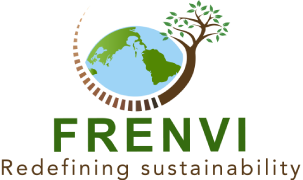Marine litter causes enormous economic losses, because only about 5 percent of the value of plastic packaging remains in the economic cycle, the rest is simply dumped, literally. About 10 million tonnes of plastic are dumped in the world’s oceans every year. That corresponds to about one truck load per minute!
But why is plastic actually so harmful to the planet?
In some countries, trash is simply dumped in the world’s oceans and rivers. Studies show that much of the trash floating in the ocean is plastic. Some of the plastic waste comes from illegally dumped waste from ships or even lost loads from cargo ships. The remaining part consists of plastic products which are left on a shore bank, for example, and are carried away during high tide or strong winds. Around 80 percent of the world’s plastic waste enters the sea from land, the remaining 20 percent comes from ships and fishing.
The effects are severe.
Every year, more than 135,000 marine animals and one million seabirds die as a result of the affluent society. Plastic is very persistent, so more and more plastic accumulates in the oceans. Plastics break down into smaller and smaller particles, but complete decomposition of the plastic does not take place. So-called microplastic particles are created, which are smaller than 5 millimetres. Humans also ingest plastic through their diet. The average person consumes 70,000 pieces of microplastic every year. That corresponds to 100 pieces during a single meal. Meanwhile, the effects on health are not known.
Worldwide, several million tonnes of plastic are thrown away every year as a matter of course after a single use. A plastic bag, for example, has a lifespan of less than 30 minutes. 73% of the world’s beach litter is plastic, according to National Geographic. The trash includes filters from cigarette butts, bottles, bottle caps, food packaging, shopping bags and Styrofoam containers.
Plastic policy in the EU
For some time now, politicians have also been increasingly focusing on the issue. The most effective way to solve the problem is to prevent even more plastic from entering our oceans.
The EU’s ban on single-use plastic in the fight against plastic waste has finally come into force. The following plastic products, for which alternatives can be made available from other materials, are now banned from July 2021:
- Disposable cutlery and crockery
- Drinking straws
- Swizzle sticks
- Cotton buds
- Balloon sticks
The Single-Use Plastics Directive
The ban also includes the following products made of polystyrene:
- To-go beverage cups
- Fast food packaging
- Disposable food containers
The same applies to disposable plates, cups or cutlery made of bio-based or biodegradable plastics, as well as disposable plates and bowls made of cardboard, only a small part of which is made of plastic or has a plastic coating.
For more information on political undertakings to combat plastic pollution, click HERE / HERE
Alternatives from FRENVI
According to the Gesellschaft für Verpackungsmarktforschung (Society for Packaging Market Research), almost 350,000 tonnes of waste were generated by disposable tableware and to-go packaging in Germany in 2017. At FRENVI, we have made it our mission to develop real & holistic zero-waste solutions that protect our planet. Specifically, we replace conventional plastic cutlery with our edible EATlery® cutlery products, which are made from natural ingredients.
But what is edible cutlery from EATlery® anyway?
Our edible cutlery is a biscuit with cutlery function. It is made from a natural and balanced mix of cereals that provides the perfect stability and great taste.
And edible cutlery is really edible?
Yes, ours are. We use only edible raw materials for our products, so our cutlery can be consumed without restrictions. It is recommended to use the cutlery as intended first as cutlery for eating and then to be snacked. The moisture in food and drinks such as soups, porridge or coffee gives the spoon a pleasant bite. If you like it crunchy, you can also eat the cutlery just as it is – it tastes great either way!
Tasty not wasty!
Browse through our products. You want to learn more? Then click on the button!


